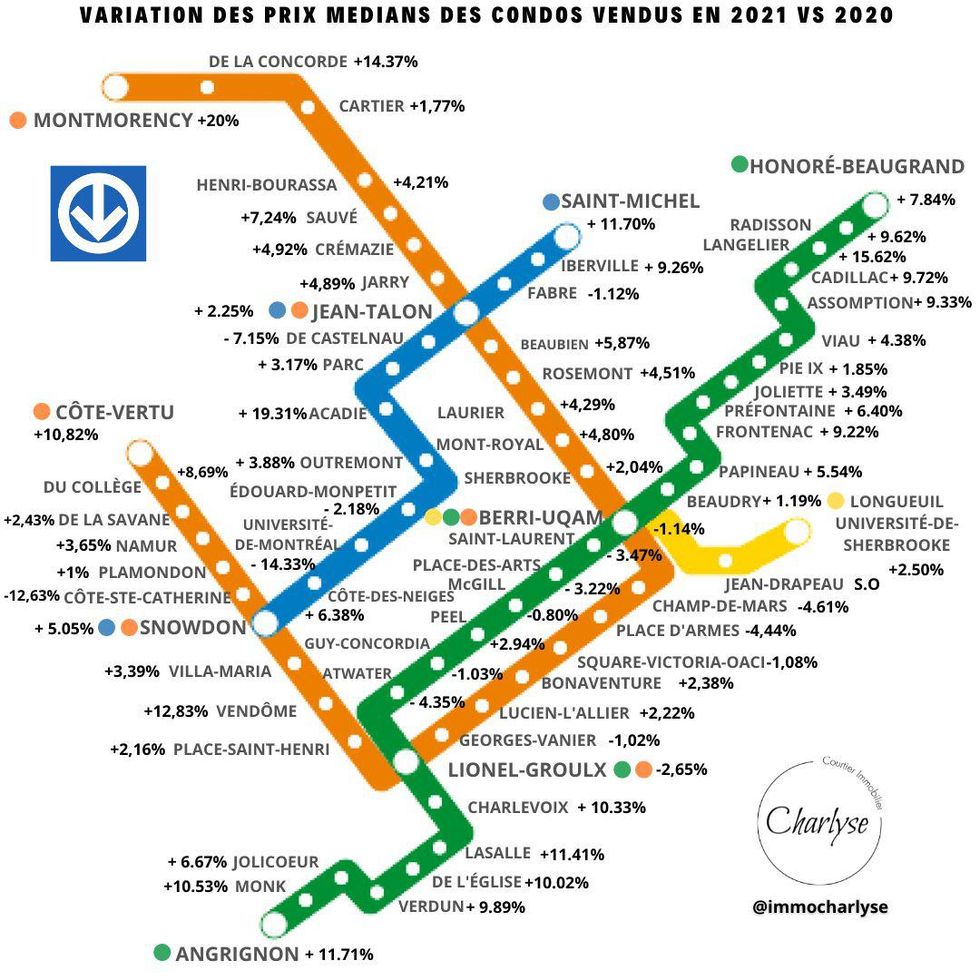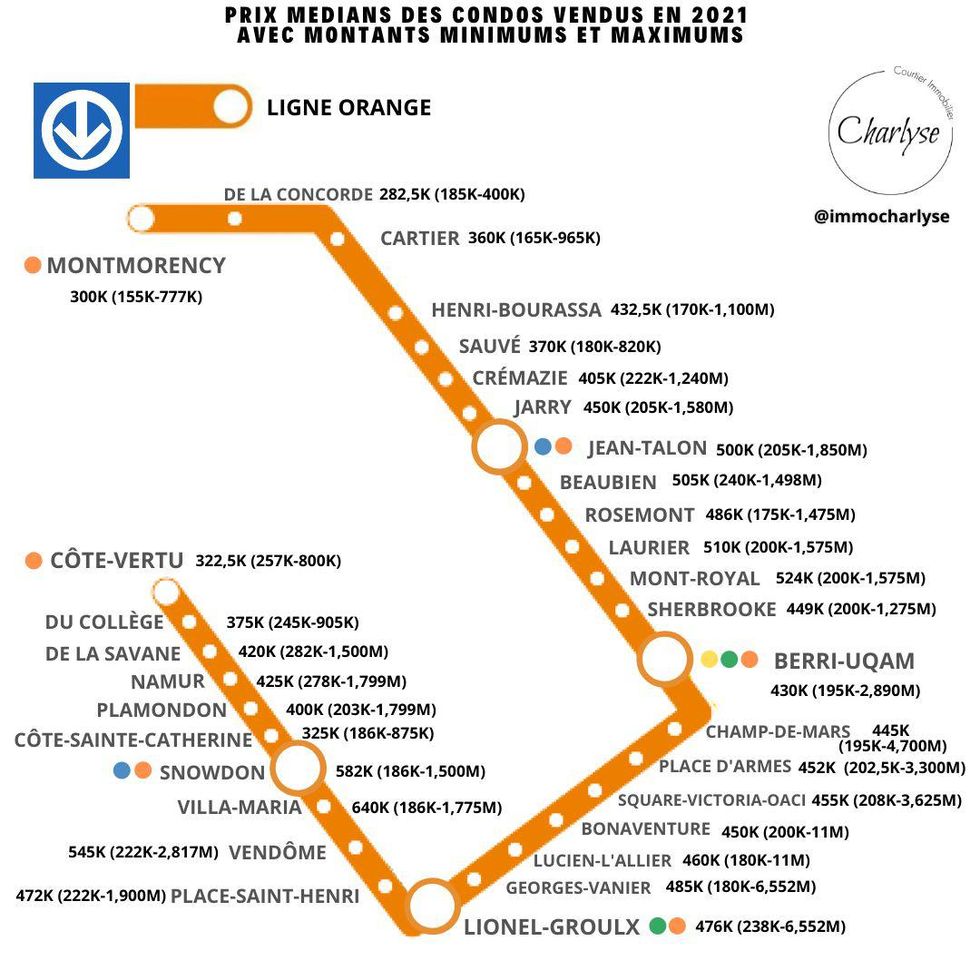Here's how much it costs to be single in Montreal and how you can survive it
In many ways, Montreal is the perfect place to be single. The city is known for its bustling nightlife, there's an amazing kaleidoscope of artists, expats, immigrants, and locals, and with the rising popularity of polyamory, you're almost guaranteed to have a great time playing the field and meeting fascinating people.
The problem, as it is so often, is money. Independence is expensive.Obviously, it's easier to get by with multiple earners in the household—you can share the cost of rent, bills, groceries and subscriptions, to name just a few things.
But for those who haven't found their person yet (and are getting tired of their roommates), here's a closer look at the financial reality of living alone in Montreal.
The cost of rent is ridiculous
OK, so this isn't exactly breaking news. Rental prices have been increasing at alarming rates in cities all over Canada, and Montreal is no exception. But reasonably priced studio and one-bedroom units are particularly difficult to come by, in large part because the burden of paying the rent isn't being divided between two or more salaries.
To put it simply, a $1,838 one-bedroom unit inhabited by one person is harder to pay for than a $2,883 three-bedroom unit shared between three people (if split equally, that's around $961 per person). These numbers aren't just plucked from the air, either. Those are the current average costs of unfurnished apartments in Le-Plateau-Mont-Royale, according to liv.rent's September 2024 report.
Currently, according to the same data, the lowest average rental prices for one-bedroom apartments on the Island can be found in Villeray-Parc-Extension ($1,423 per month), Saint-Laurent ( $1,555 per month) and Ahuntsic-Cartierville and Côte-des-Neiges–Notre-Dame-de-Grâce (both $1,564 per month).
However, the cheapest way for a single adult to rent on the Island is still to find two or more roommates and split the rent. The cheapest areas to find a three-bedroom unit are Hochelaga-Maisonneuve ($2,056 total, around $685 per person when divided by three) or Villeray-Parc-Extension ($2,092 total, around $697 when divided by three). Clearly, there's a pretty big difference.
And that's not all.
The average single inhabitant in Montreal pays $52 per month on utilities, according to Expatistan, while the average family (which ideally has two or more breadwinners) only pays $82 per month. The average unlimited internet price in Montreal is $50 per month, again, paid in full by singles.
Food is also expensive
Groceries and restaurant prices have also gone up significantly in the past few years, in large part due to increased property taxes. According to Numbeo, the average cost of a meal in a decent-ish restaurant is $25 per person, so assuming one is going out to dinner once per week and not paying for their dates' meals (a hella valid, if controversial, choice), throw in another $100 per month into the budget.
Likewise, those grocery bills are also likely not being divided if you're single, so you can add several hundred dollars to the monthly cost of living tab for eating and drinking alone.
Getting around can also be pricey
STM prices have also (say it with me now) gone up in recent years. The cost of an unlimited monthly OPUS card is $100. If you're taking public transit to and from work or school every day, this is by far the cheapest way to get around the city (besides walking or biking).
Driving is also a popular option, but an expensive one. As of writing this article, the cheapest gas price in the Greater Montreal Area is still ¢142.9 per litre. Add to this the costs of insurance and maintenance on one paycheque, and it quickly becomes clear that, after rent, cars may be the biggest monthly expense for a single person.
How to manage money on a single income: Tips and tricks
When you're not splitting expenses with a partner, and don't have a partner's income to fall back on in an emergency, it's crucial that you have a firm grasp of your financial situation. Here are some basic financial hygiene tips for singles:
- Know how much you actually spend in a month: For many people, money management is overwhelming. It can feel easier to just sort of pretend the numbers in those bank accounts don't exist and sort of hope that the money coming in is more than the money going out. But long-term it is way more anxiety-inducing to hold your breath every time you tap your debit card than it is to take a couple of hours to figure out how much your life costs, how much you earn, and how much you can lower the former and boost the latter.
- Move away from the downtown core: As much as we all dreamed of living in the heart of the city when we grew up, the current renting reality makes this highly impractical for many single people. On top of this, more and more workers are going fully remote, suddenly making a fancier area code less necessary for finding jobs. Singles should consider moving to some of the more affordable boroughs mentioned above or at the very least, moving in with roommates.
- Learn to cook vegetarian meals: Eating out every day? In this economy? Not only is that immature AF, it's financially disastrous. Learning to cook even a handful of filling meals is an instant way to slash monthly expenses. On top of this, choosing recipes based on the cost of their ingredients is another great way cut down on grocery costs. As a general rule, meals centered around meat are the most expensive. This isn't to say that everyone should go fully vegetarian, but prioritising vegetarian recipes is a quick fix to a massive grocery bill.
- Don't be afraid to negotiate: Whether it's negotiating the salary of a new job, adjusting a phone plan, or haggling the rental price on a new lease, it's never a good idea to accept a first offer. Once per year, it's also a good idea to evaluate if a raise at work is called for or if the internet bill is still competitive. Far fewer numbers are actually set in stone than we assume. It never hurts to ask (nicely), and the worst someone can say is, "No."
- Keep an "F You" fund: This is a solid tip for anyone. Also called an Emergency Fund, this is at least three months' worth of living expenses saved in case something goes wrong. That way, if you suddenly need to quit a job in a toxic environment, get laid off, or need to leave an unsafe or unpleasant living situation, you have the funds to leave and the time to get back on your feet.





